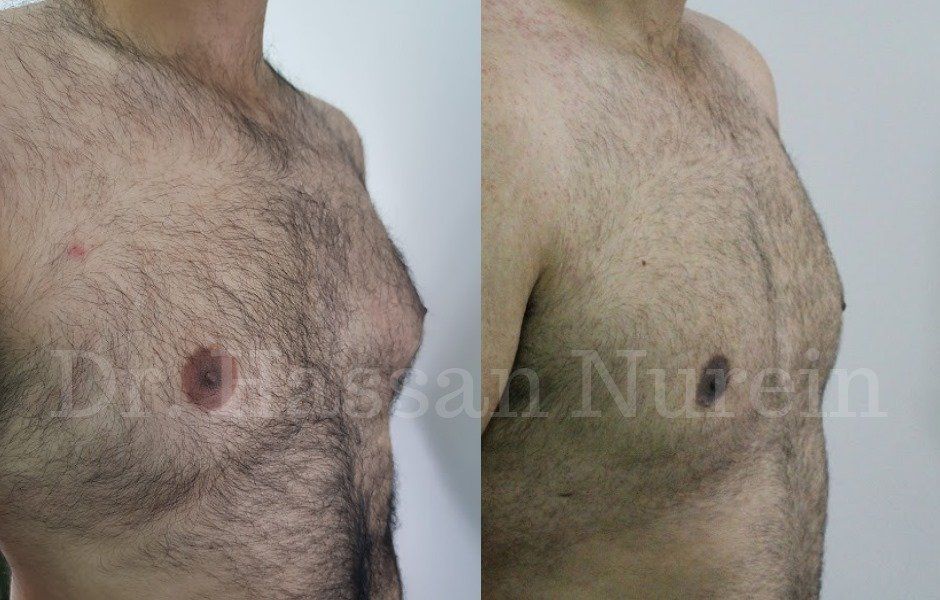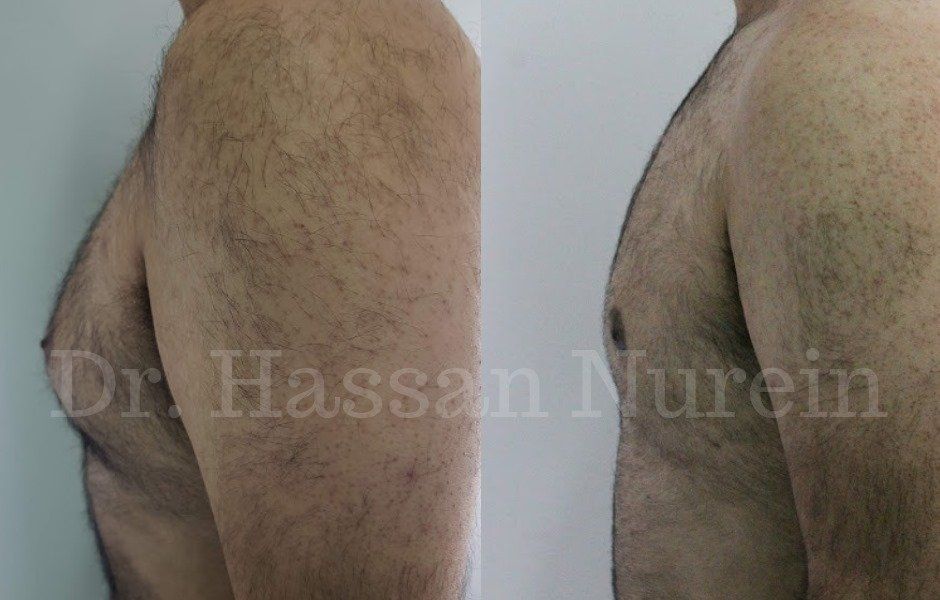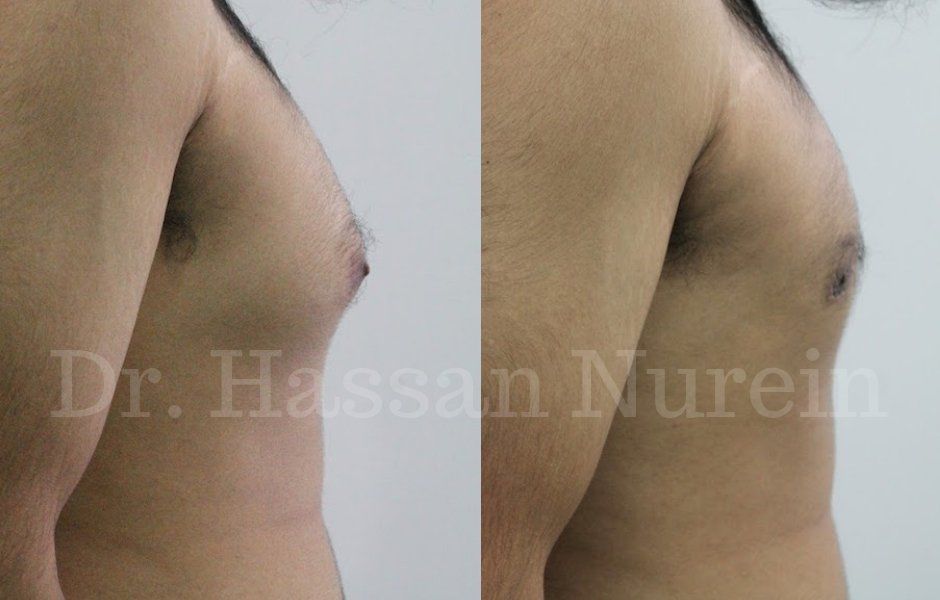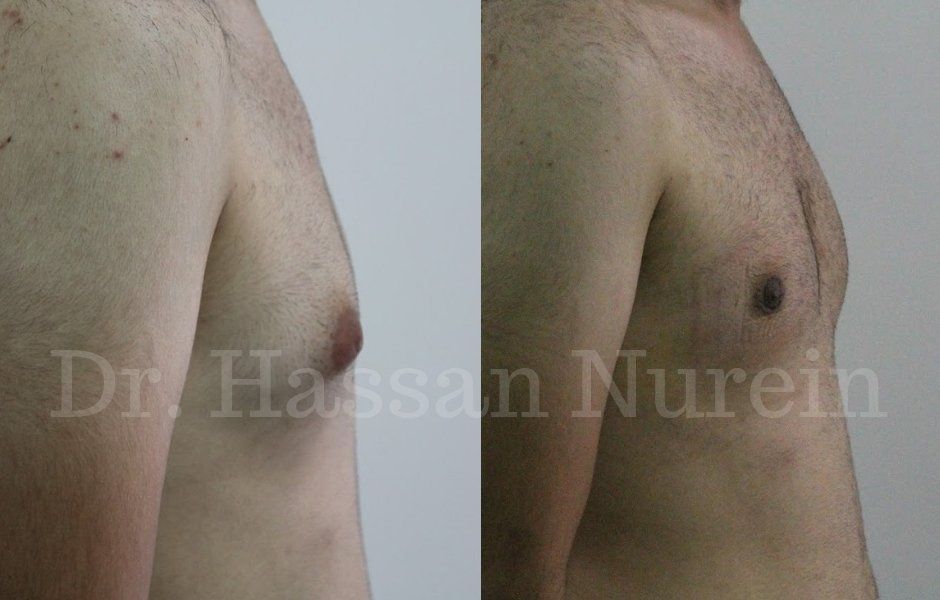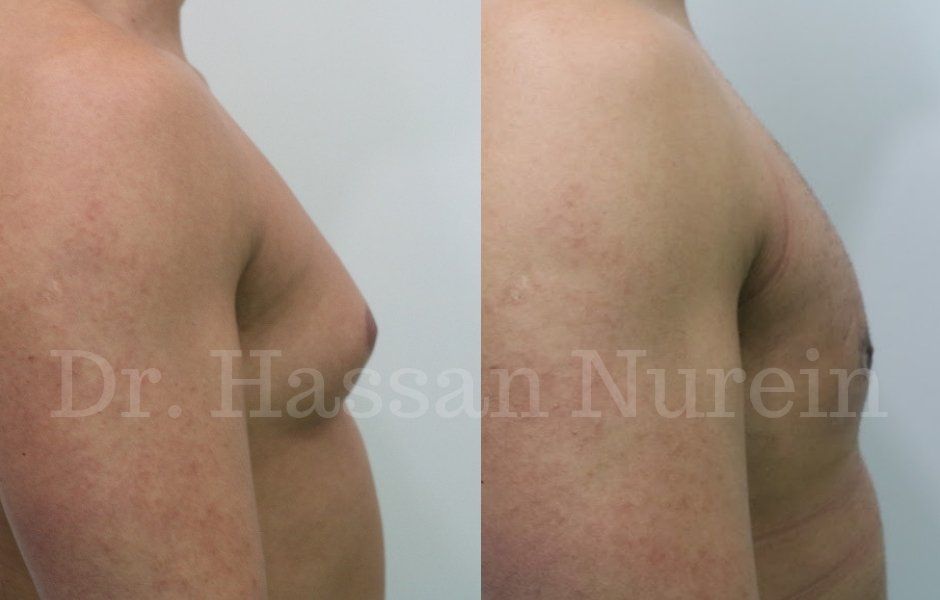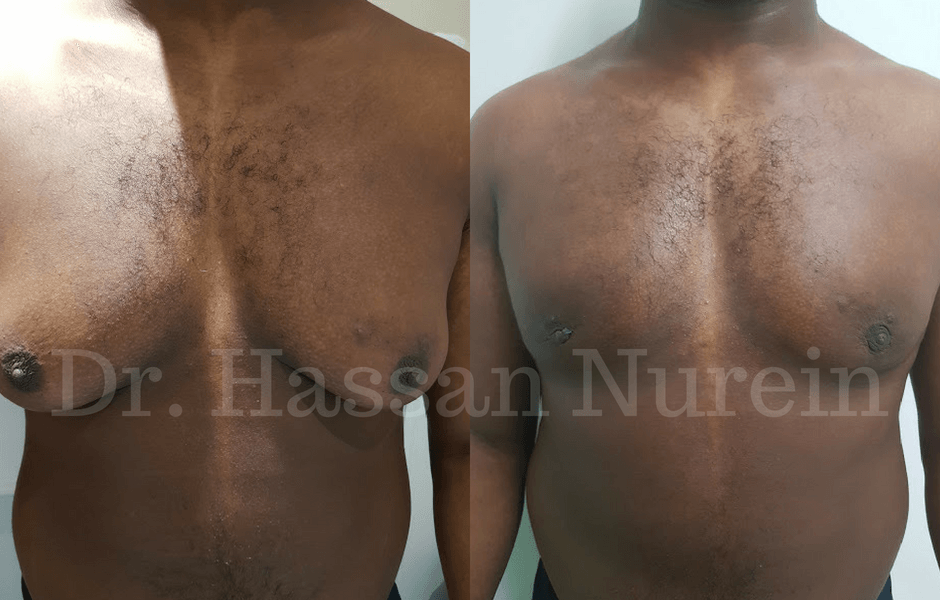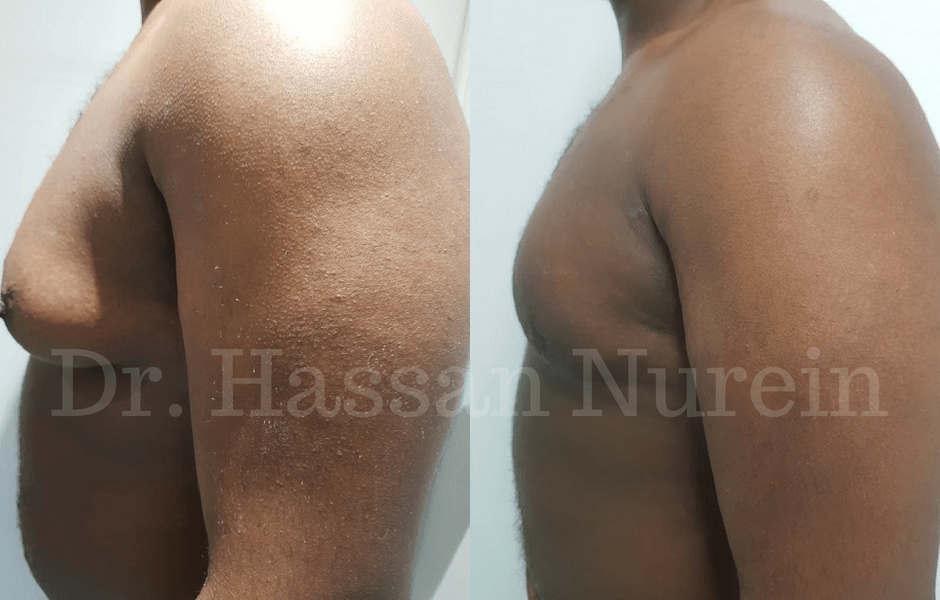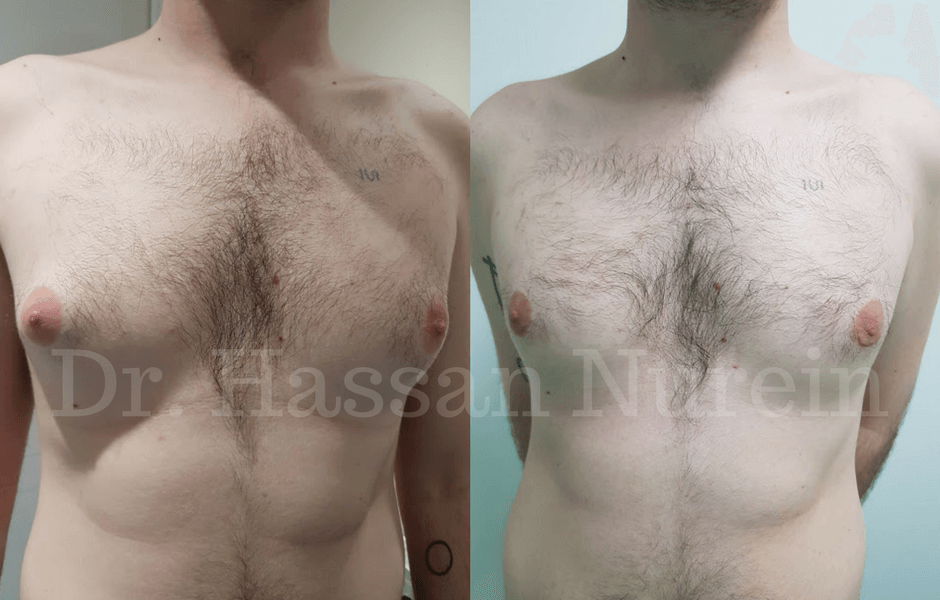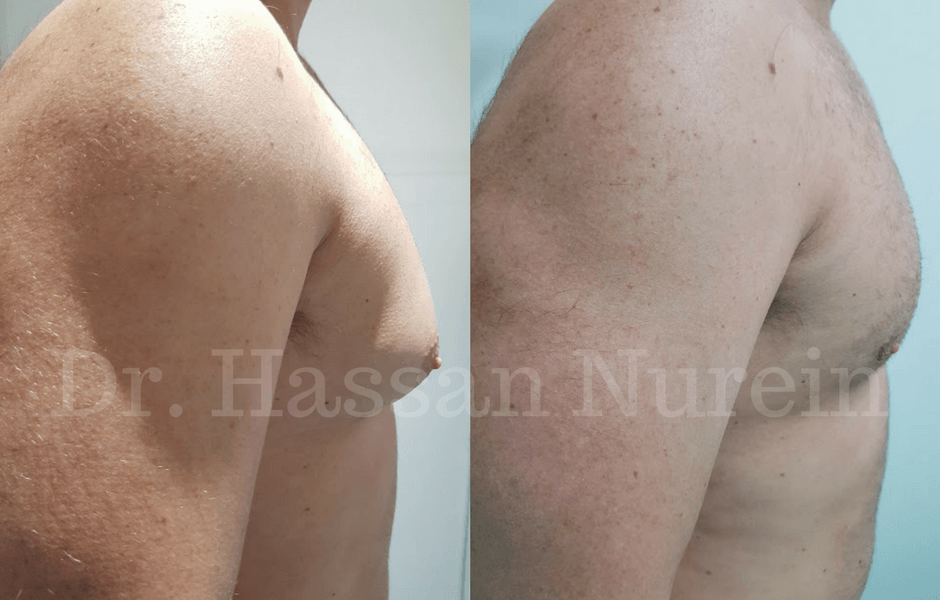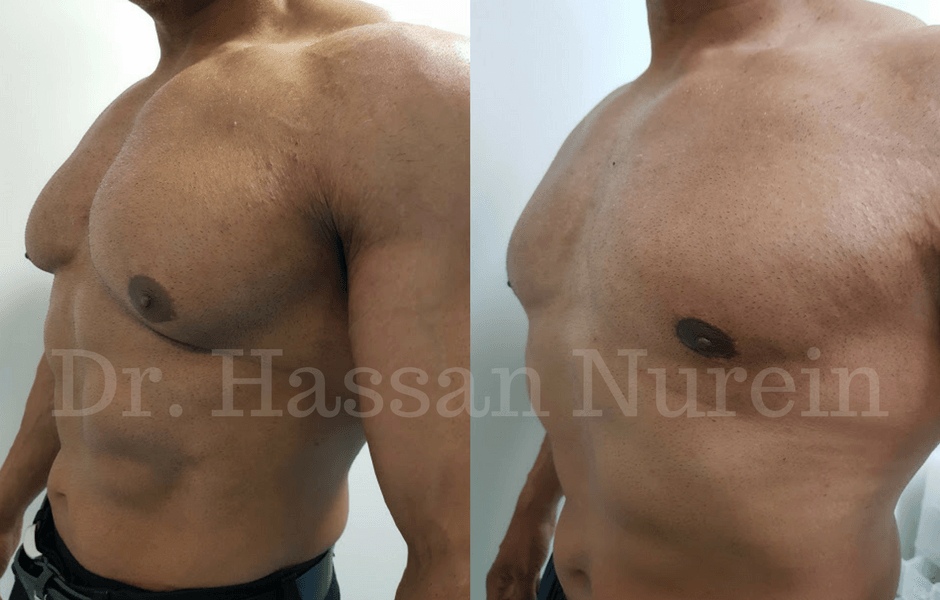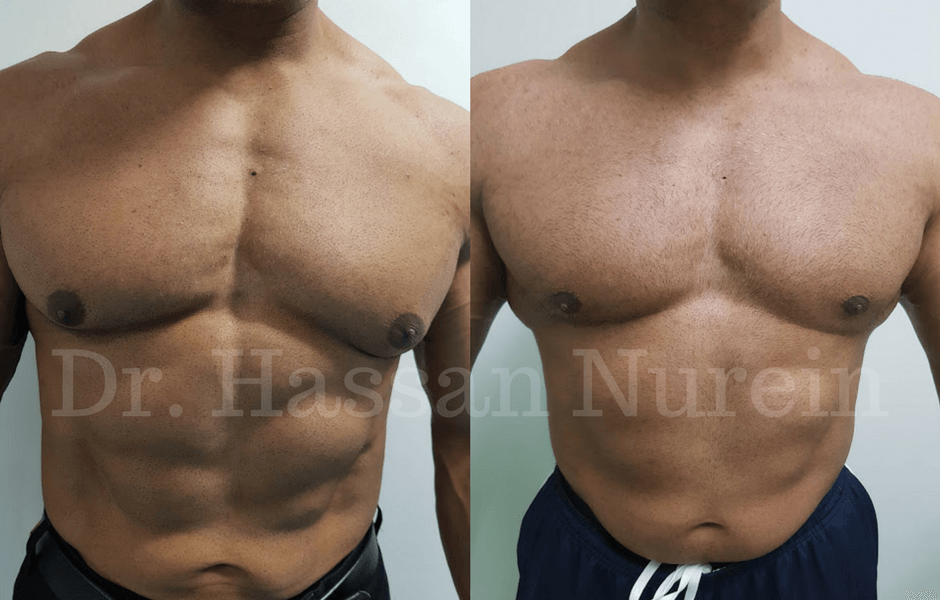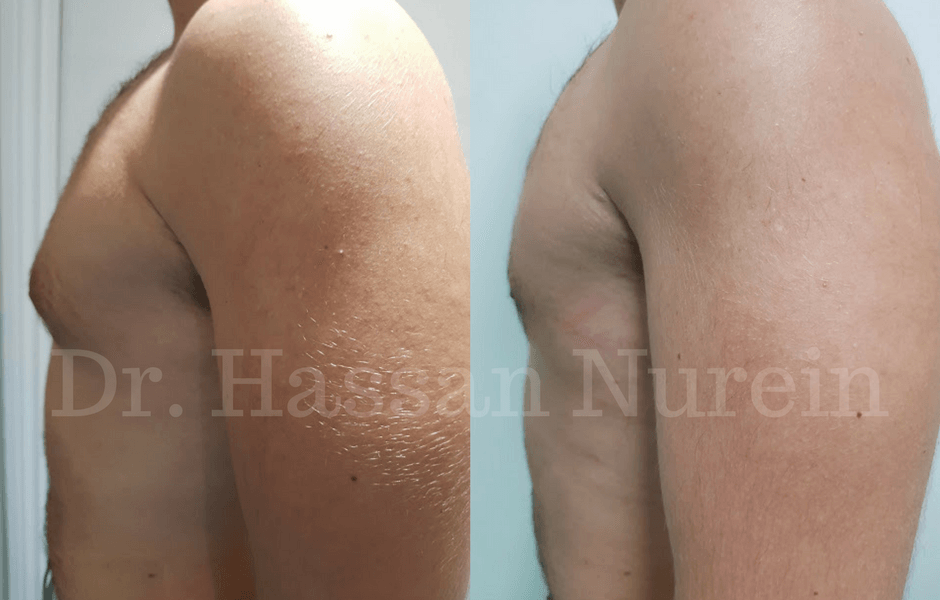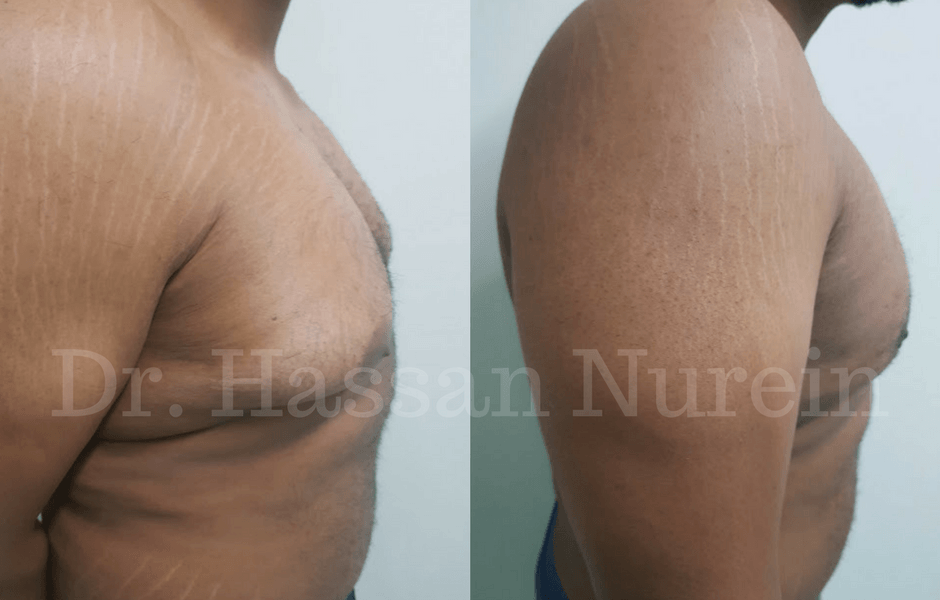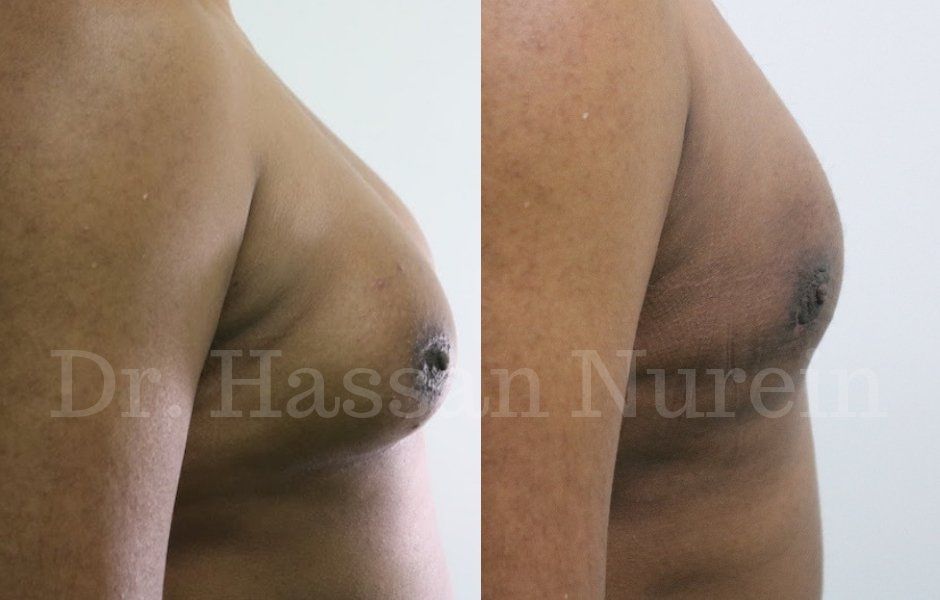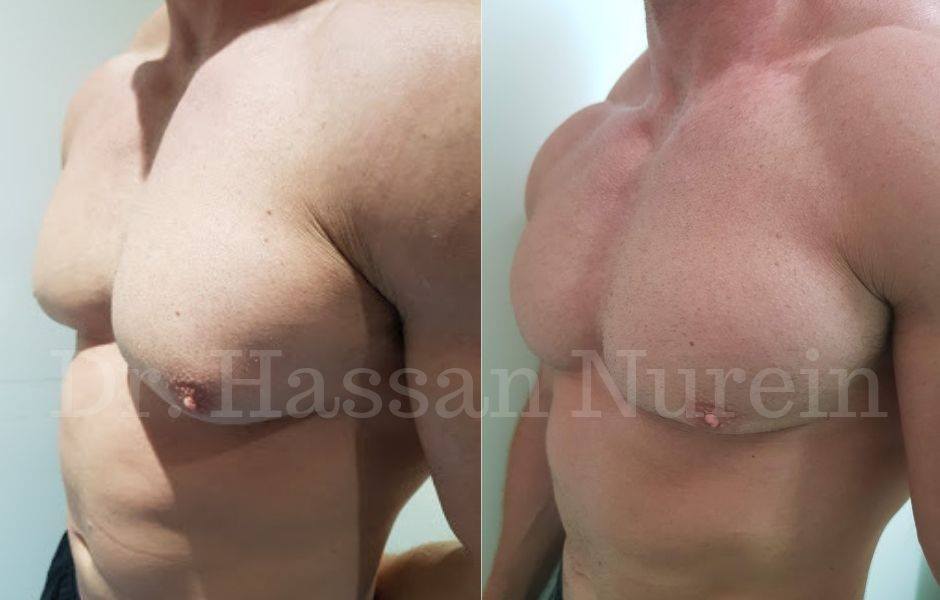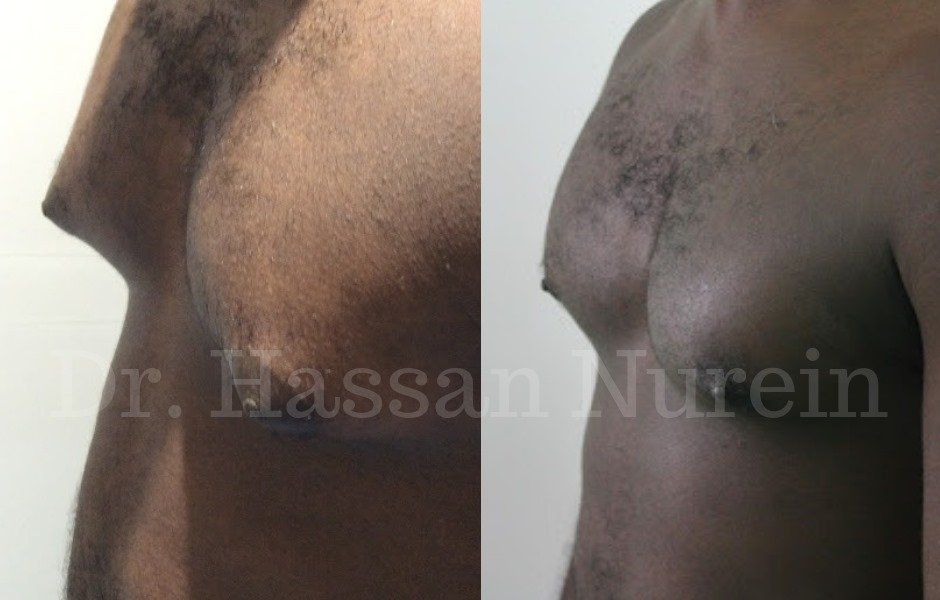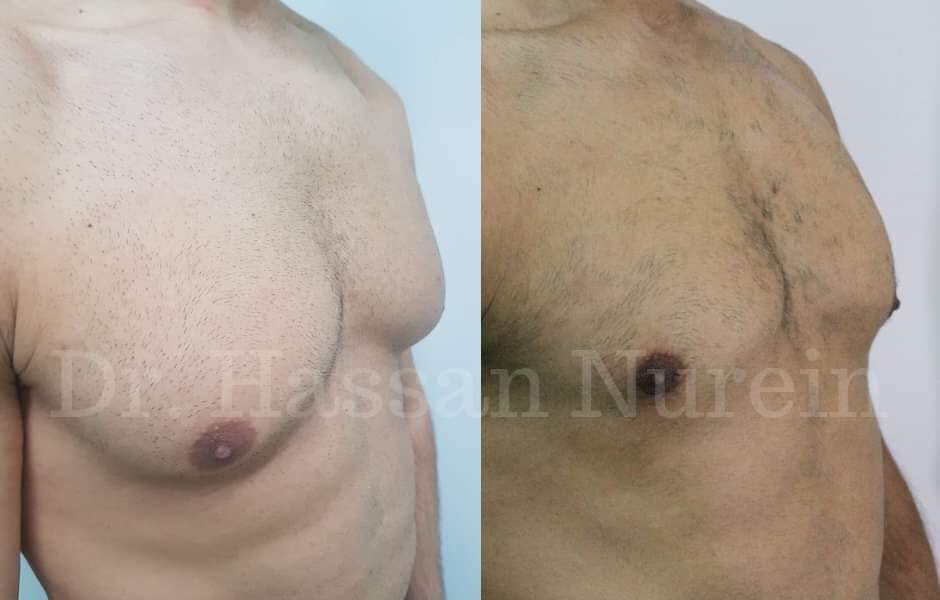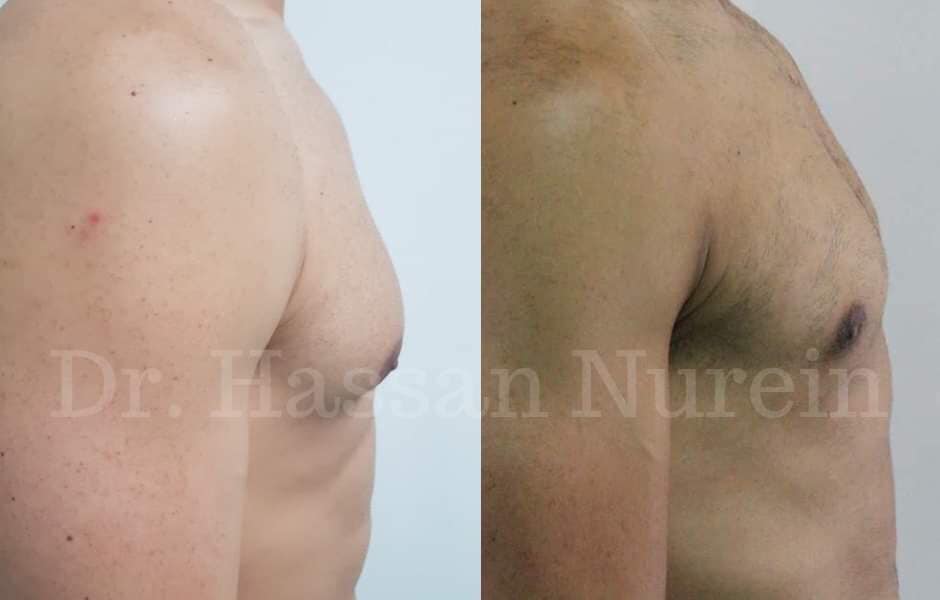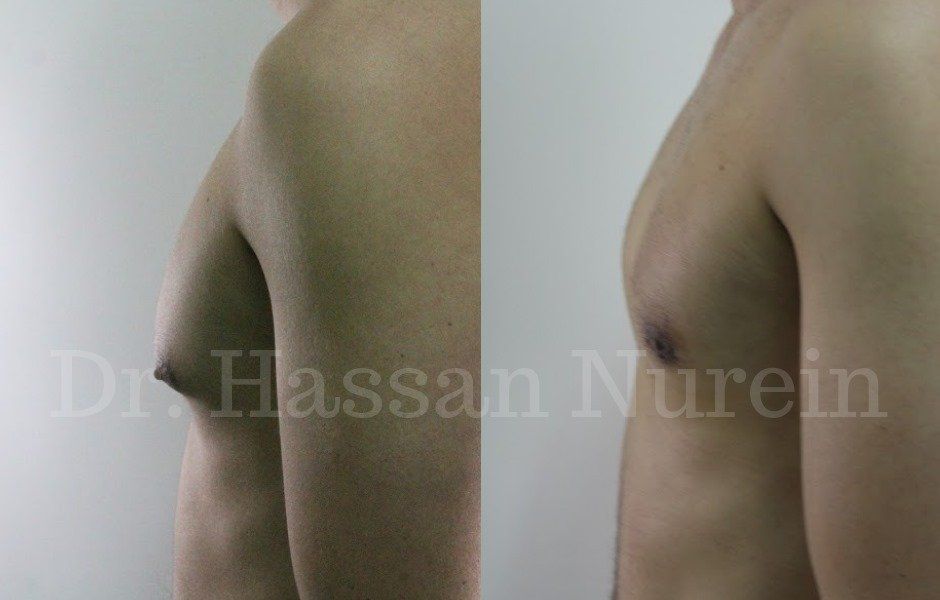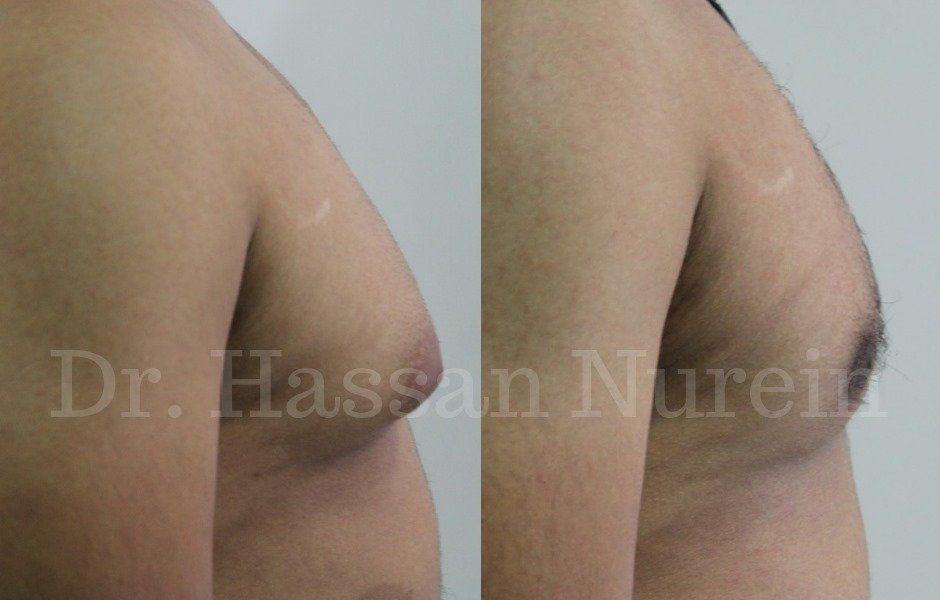UK Specialists In Gynecomastia Surgery
Gynecomastia Surgery
Gynecomastia (Male Breast Reduction) by be
Cosmetic Gynaecomastia Clinics
Enlarged male breasts, medically referred to as Gynecomastia, is a condition that affects almost 60-70% men and is due to enlarged glands or an accumulation of fatty tissue in the chest area.
Often developing during the puberty stages, Gynecomastia occurs when an abnormality in the ratio of hormones causes small lumps to grow under each nipple.
These lumps sometimes disappear over time but can also continue to grow resulting in what is commonly referred to as ‘moobs’. This is a serious and psychologically distressing condition; which can also lead to depression in men who are afflicted by this.
In many cases the cause of gynecomastia is unknown. We recommend seeing your GP first to rule out any known treatable causes.
The Process:
Gynecomastia surgery can be carried out under sedation, local or general anaesthesia, the duration of which can take one or two hours, case to case. At our clinic we use local anaesthesia.
Your surgeon starts by making a small incision around the nipple. At this point the treatment differs, depending on the type and stage of Gynecomastia. Either Liposuction is performed to remove fatty tissue, or glandular tissue is removed along with any loose skin. Often both methods are employed to enhance the results.
As an experienced body sculpting surgeon, Dr Nurein also uses BodyTite skin tightening to help patients achieve enhanced results.
The Outcome:
Male chest reduction surgery is an effective way to reduce the size of the breast area whilst creating a flatter, firmer and better-contoured shape.
After your surgery, you will leave our clinic with clear instructions on how to look after your chest area along with telephone support if you have any worries. On returning home, you will need to take a few days off work so that you can rest and you will need to avoid any strenuous exercise or lifting for up to six weeks. We will also provide you with an elastic garment to wear at day and night to achieve the best results.
It’s likely that you will feel a little sore for a few days following the surgery, but we can prescribe you some painkillers to help you handle any discomfort.
Frequently Asked Questions
1) What is Gynecomastia? Why does this occur?
Gynecomastia is a term used to describe male breast enlargement, due to enlargement of the glands. Sometimes it is caused by an accumulation of fatty tissue - when breast enlargement is caused by fatty tissue alone it is known as pseudo Gynecomastia. There are many causes such as a hormonal imbalance due to liver or testicular disease; drugs such as anabolic steroids or puberty. Breast enlargement in men can also be caused by weight gain, obesity or old age. In very rare cases, cancer can cause Gynecomastia.
2) How do I know if I am a candidate for Gynecomastia treatment?
There are different stages of Gynecomastia and therefore treatment options vary accordingly. Often, if symptoms of Gynecomastia are first apparent during puberty, it may be advised to wait as long as two years to allow for natural regression of the breast tissue. Other factors include the presence or absence of excess skin and the cause of Gynecomastia in the patient. If you are not happy with the size of your breasts, it is necessary to see your GP first to rule out other potential issues. Many men chose to have Gynecomastia treatment for aesthetic reasons but some actually experience physical discomfort associated with the condition. Booking in for a consultation with a Cosmetic Surgeon who offers Gynecomastia treatment would be the next step to see if you are a suitable candidate for treatment.
3) Is there any chance of regression without surgical intervention?
Yes, it depends on the cause. As mentioned above, in the case of Gynecomastia onset at puberty the breasts may regress naturally within two years. Causative factors should be addressed in the first instance, such as underlying medical conditions (eg. hyperthyroidism) and certain medications/supplements. This is why seeing your GP should be the first step. In the case of mild pseudo-Gynecomastia, losing weight may help.
4) What are the treatments available for Gynecomastia at Be Cosmetic Gynaecomastia Clinics?
Minimally invasive Vaser Liposuction, using ultrasound technology to remove the fatty tissue and/or surgical gland removal, which involves making a small incision on the side or in the middle of the breast. The method is chosen according to the stage of the Gynecomastia and the preference of the patient. All this will be discussed and agreed with the Surgeon prior to treatment.
5) ) How long do Gynecomastia surgery and recovery take?
Gynecomastia treatment duration depends on the method of treatment (eg. Gland removal and/or Vaser Lipo) and the severity of the condition. Commonly the procedure duration ranges from 1 to 2 hours approximately. Recovery time is generally about a week.
6) Will Gynecomastia surgery hurt? Is there any scarring from this surgery?
Gynecomastia surgery is performed under local anaesthetic by Dr Nurein, but sedation is an option. Pain is usually associated with the initial needle prick, after that the area is anesthetized so no pain or only mild occasional discomfort is experienced. There is a little scarring from the treatment, however it is minimal and depends on the patient. Most are satisfied with the type of scar that is in the aereola (the dark circle around the nipple). The majority of patients accept this and feel it is a small price to pay for the results of having a flat chest.
7) Are there any complications or risks associated with Gynecomastia surgery?
Yes there are potential complications and risks, initially related to the drugs used, such as allergic reaction. There are also surgical risks, as with any surgery, like bruising, pain and temporarily swelling. Less common are: numbness, bleeding (hematoma), fluid collection (seroma) and/or infection, irregularities and asymmetry, loose skin.
8) What precautions should I take before & after Gynecomastia surgery?
It is advised to avoid using over the counter medication, supplements and vitamins for one week prior to the surgery and disclose all medical problems and associated medication with your Doctor. Also, smoking, recreational drugs and alcohol should not be consumed for one week prior to your treatment. Your Doctor/the Clinic should be informed of any change in medical conditions and if you develop a cold or flu etc your procedure will need to be postponed. Avoid surgery just before travelling or major occasions, such as weddings – it is best to have at least 2 weeks recovery time at least. You will need to be available for a follow up one week-ten days following your treatment. You must also attend a pre-operation consultation with your Doctor. The after-care advice should be followed and if you notice anything abnormal or of concern you must contact the clinic immediately. Exercise, bathing or swimming should be avoided for at least two weeks, you can however shower the next day. You will be provided with a compression garment this should be worn as advised.
9) Is there any chance of breast cancer in Gynecomastia?
Gynecomastia is usually a benign (noncancerous) condition. Breast cancer in men is rare and occurs in only 1% of cases of male breast enlargement. Gynecomastia, however, may present itself as a symptom of certain cancers or illnesses, but this is not always the case.
10) What does a Gynecomastia surgery cost?
The price depends on the method of treatment used and the stage of Gynecomastia. A quote will be given to you at the time of consultation along with a treatment plan.
Book A Free Gynecomastia Consultation or Request More Information
Oops, there was an error sending your message.
Please try again later
Please try again later
We offer free face-to-face consultations at our clinics in London, Harley Street, and Sheffield, as well as free online video consultations. Submit the form below and fill in the pre-consult form on the next page to receive the appointment slots.
Make an enquiry - Call Now
Monthly Finance Available
* Notice:
The outcomes of surgical and other procedures may vary between patients. Whilst all treatments are carried out professionally and to the highest standard, permanent results cannot be guaranteed.
The minimum age for any consultation and surgical procedure is 18.
CONTACT US
London Clinic | 18-22 Queen Anne Street, London, W1G 8HU
Sheffield Clinic | 991 Abbeydale Road, Sheffield S7 2QD
New Enquiries | 0207 175 1850
Surgery Aftercare
| 0207 175 1795
Follow Up Appointments | 0207 175 2696
Other Enquiries
| 0800 776 5796
Email
|
clinic@becosmetic.com
Due to our central London location on Harley Street, we are unable to offer on site parking. However, off street paid parking is available close to the clinic.
Please note that currently we are experiencing a busy time at the clinic and although we do our best to get back to everyone on time, we appreciate your patience. We will respond to your enquiry. Many thanks in advance.
© 2024 BeCosmetic Gynaecomastia Clinics

